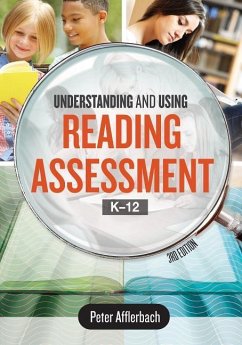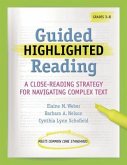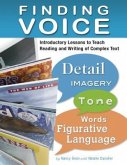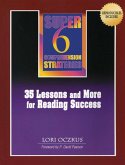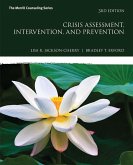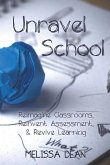Why do we assess reading? What do we assess when we assess reading? How, where, and when do we assess reading? Reading instruction and assessment expert Peter Afflerbach addresses these questions and much more in the 3rd edition of Understanding and Using Reading Assessment, K-12. Using the CURRV model to evaluate reading assessment methods--including reading inventories, teacher questioning, performance assessment, and high-stakes reading tests--Afflerbach considers the consequences and usefulness of each method, the roles and responsibilities of key stakeholders, and the reliability and validity of the assessments. In addition, he examines four important but often overlooked aspects of reading assessment: * Assessment accommodation for English-language learners and students with special needs Assessment of noncognitive aspects of reading, such as motivation, engagement, self-concept, and self-efficacy * The use of formative and summative assessment * The importance of self-assessment in building reading independence The book provides detailed case studies from all grade levels to illustrate reading assessment done well. It also includes 15 reproducible forms and checklists that teachers and administrators can use to optimize their reading assessment efforts. Students are expected to read increasingly complex texts and to complete increasingly complex reading-related tasks to demonstrate their growth as readers. This book offers teachers and administrators alike a clear path to helping students meet those expectations. This book is a co-publication of ASCD and ILA.
Hinweis: Dieser Artikel kann nur an eine deutsche Lieferadresse ausgeliefert werden.
Hinweis: Dieser Artikel kann nur an eine deutsche Lieferadresse ausgeliefert werden.

